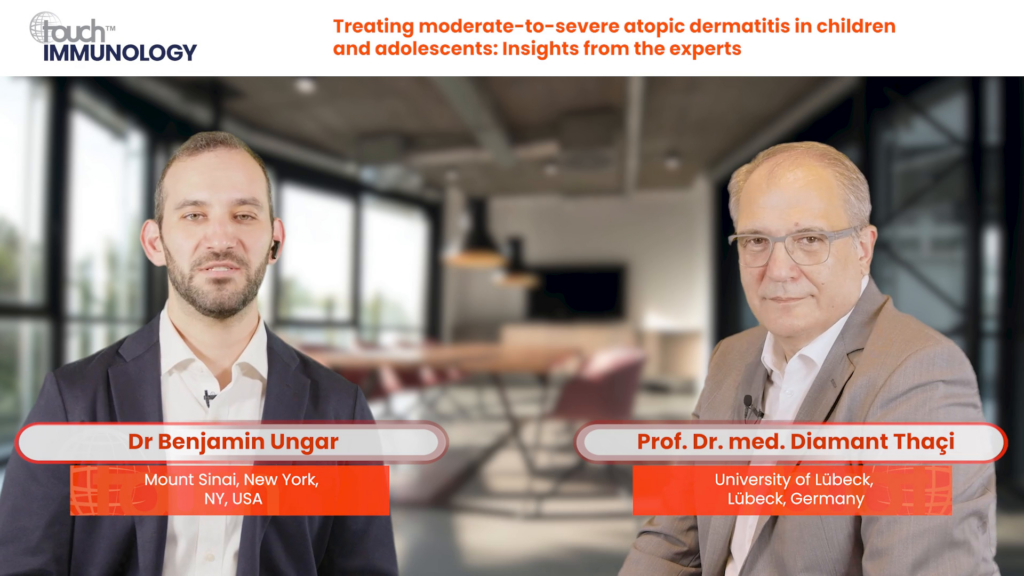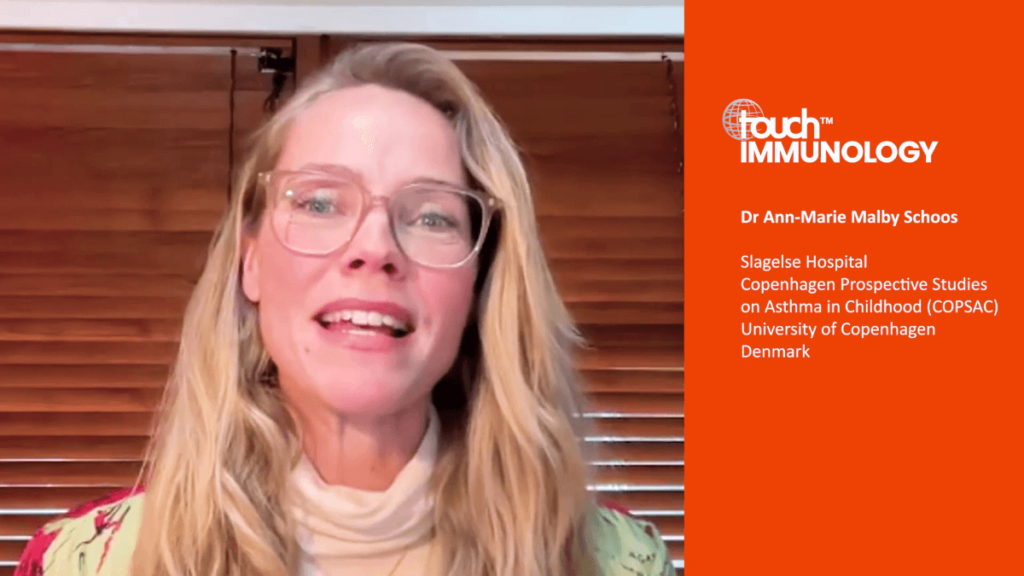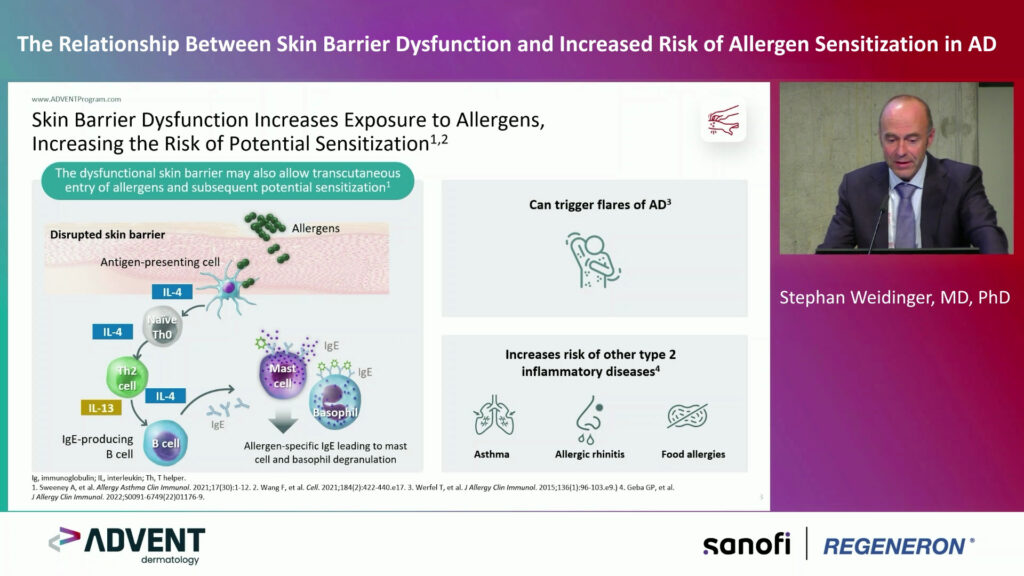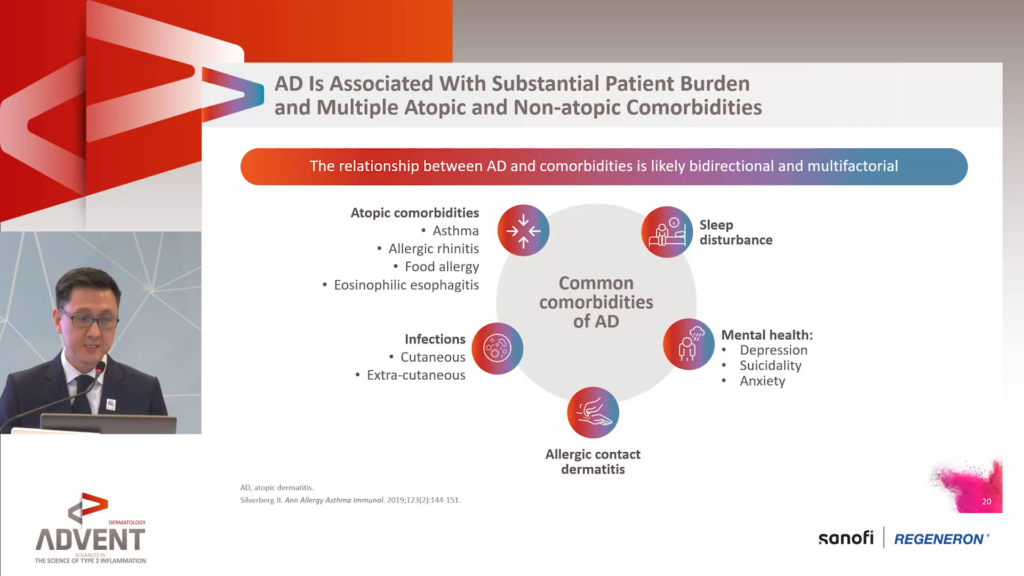Atopic Dermatitis
An Introduction to Atopic Dermatitis
Atopic dermatitis is a chronic skin disorder, the prevalence of which is increasing. It is caused by interactions between the epidermal barrier and immune system, with activation of multiple T cell subsets, and characterised by pruritis and cutaneous inflammation. Topical treatments include topical corticosteroids, calcineurin inhibitors, emollients and cutaneous antiseptics; severe disease requires treatment in the form of systemic immunosuppressants. Increased understanding of the pathogenesis of atopic dermatitis has led to the development of targeted therapies, such as crisaborole, a topical phosphodiesterase 4 inhibitor, and dupilumab, a subcutaneously injected interleukin-4 receptor inhibitor. Emerging therapies include Janus kinase inhibitors, aryl hydrocarbon receptor agonists, antimicrobial peptides, and biologics targeting interleukin-13, the interleukin-31 receptor, and the interleukin-5 receptor.
Our supporting partners do not constitute an endorsement of the content on this page.

Physician burnout is at a critical point. In this episode, Nicky speaks with Dr Alfred Atanda about why so many physicians are burning out and what can be done to change the trend. From personal experience to system-wide solutions, Dr Atanda shares valuable insights on improving physician well-being and building a more effective healthcare culture.

In this episode, we explore the future of continuing medical education (CME) with the team behind touchIME. Hannah Fisher and Matthew Goodwin share insights into global and US trends, the importance of patient inclusivity and how educational outcomes are evolving to better measure the direct impact of learning on clinical practice and patient care.

Recent advancements made in understanding the pathology of inflammatory skin conditions have enabled JAK inhibitors, initially developed for haematology over 20 years ago, to be investigated for dermatological use. In this episode, Dr William (Bill) Damsky discusses JAK inhibitors’ journey from proof-of-concept to treating a wide range of skin conditions, their future impact on rare diseases and the debate around safety.

Treating moderate-to-severe atopic dermatitis in children and adolescents: Insights from the experts
Watch expert dermatologists discuss the management of moderate-to-severe AD in children and adolescents.









An allergist shares her expert insights and guidance on key clinical questions around the changing paradigm in the diagnosis and management of pet allergies.

Watch highlights of three ADVENT symposia presented at EADV 2023

Watch three experts discuss how they manage moderate-to-severe atopic dermatitis in children.

Key updates from 2 cutting-edge expert symposia presented at WCD 2023

Atopic dermatitis is a chronic skin disorder causing inflammation, redness and irritation of the skin, and usually begins in childhood. touchIMMUNOLOGY caught up with Prof Amy Paller (Northwestern University Feinberg School of Medicine; Lurie Children's Hospital of Chicago, Chicago, IL, ...

JADE-EXTEND (NCT03422822) is a phase 3 long-term extension study investigating the efficacy and safety of abrocitinib in atopic dermatitis. In this touchIMMUNOLOGY interview, we caught up with Dr. Melinda Gooderham (SKiN Centre for Dermatology, Ontario, Canada) around her interim analysis of ...

There are numerous therapeutics available to patients with inflammatory skin diseases, including TNF-alpha inhibitors, IL inhibitors, TYK2 and JAK inhibitors, optimising the use of these therapies could be achieved with a personalised approach to treatment. We were delighted to speak ...

ADvocate 1 (NCT04146363) and ADvocate 2 (NCT04178967) are phase 3, randomised, double-blind, placebo-controlled trials, investigating lebrikizumab monotherapy in moderate to severe atopic dermatitis. touchIMMUNOLOGY caught up with Prof. Gil Yosipovitch (Miller School of Medicine, University of Miami, Miami, FL, USA) around the ADvocate 1 and ADvocate 2 phase 3 studies and the findings from his analysis of these studies presented at EADV, focusing on improvement in itch severity. The abstract 'Lebrikizumab monotherapy improved itch in adults and adolescents with moderate to severe atopic dermatitis in two phase 3 trials.' (Abstract number: 765) was presented at EADV 2022, 7-10 September, 2022. Questions What is the impact of itch on quality of life in atopic dermatitis? (0:21) Could you give us a brief overview of the ADvocate 1 and ADvocate 2 studies and their primary findings? (0:38) What were the findings in terms of itch severity, and how clinically meaningful was this change? (1:26) What will be the clinical impact of these findings? (2:51) Disclosures: Gil Yosipovitch discloses consulting for Sanofi Regeneron, Eli Lilly, Galderma, Sanofi, Kiniksa, Trevi, Escient and Pfizer; receiving grant/ research support from Sanofi Regenron, Eli Lilly, Novartis, Pfizer, Escient; serving on advisory boards for Sanofi Regeneron, Eli Lilly, Galderma, Sanofi, Kiniksa, Trevi, Escient and Pfizer; receiving honoraria from Sanofi Regeneron, Eli Lilly, Galderma, Sanofi, Kiniksa, Trevi, Escient, Pfizer and Novartis. Support: Interview and filming supported by Touch Medical Media Ltd. Interview conducted by Victoria Jones. This content was developed by Touch Medical Media and is not affiliated with the European Academy of Dermatology & Venereology (EADV) or the congress.

Paediatric atopic dermatitis is a common chronic skin condition in children that results in dry, itchy skin. It was a pleasure to talk with Dr. Laura Carucci (University of Naples Federico II. Naples, Italy) to discuss the aims, outcome measures ...
Latest articles videos and clinical updates - straight to your inbox
Log into your Touch Account
Earn and track your CME credits on the go, save articles for later, and follow the latest congress coverage.
Register now for FREE Access
Register for free to hear about the latest expert-led education, peer-reviewed articles, conference highlights, and innovative CME activities.
Sign up with an Email
Or use a Social Account.
This Functionality is for
Members Only
Explore the latest in medical education and stay current in your field. Create a free account to track your learning.





